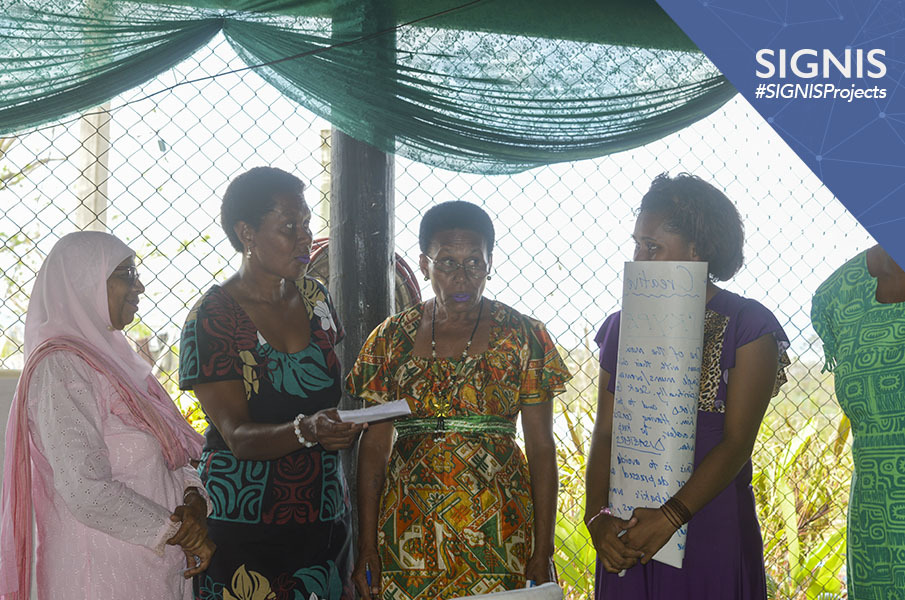Fiji is an archipelago of more than 300 islands located in the Pacific. It counts with almost a million inhabitants, and it is one of the most developed countries in the region. Nevertheless, there are still destitute people who rely on the support of the Church to have better living conditions.
The Housing Assistance and Relief Trust (HART) was established in 1970 by the Fiji Council of Churches. It is a charitable organization that was initially formed to provide shelter for the destitute of the country. HART has communities and settlements across the two main islands (Viti Levu and Vanua Levu) and provides assistance to more than 850 families per year. Its main focus is to help and empower women with children, and among its services they offer care-giving services for the elderly and people with special needs, education assistance for children and welfare services, information and referral services, and furthermore strives to educate the public on their responsibility towards their community members.
The ultimate objective that HART aspires to achieve is far beyond supporting the destitute people in its communities, but empowering people, especially women and children, to move on and live a fuller life in the wider community. It is for this reason, that HART also provides educational assistance, workshops, and training in areas such as human rights, crafts, and media education and literacy.
For the latter, HART partnered with SIGNIS, and with the subsidies obtained from the Pontifical Society of the Propagation of the Faith (PSPF), it was possible to train women and children about how to harness the power of communication.
Through a series of workshops and training sessions, the participants were able to learn about citizen journalism and gain media literacy, as they strengthened their knowledge on how to be critical, analytical, and how to use the media creatively. In addition, the female participants were able to understand better their rights and power as women, and they’re now able to teach their children about the advantages and disadvantages of the media gadgets they are close to. The children are now more confident in the use of computers and phones, and know that those are tools that can assist them with their education.
Projects like this, allow people to communicate effectively with others, access relevant and updated information, discern between facts, opinions, truth, and sensationalism, and gain confidence to use media technology to raise visibility about their life and issues of concern.
For Harieta Sumasafu, a community leader that participated in the Media Education programme, the training taught her “to be a confident woman”, leading her to help others too. Since the workshop, she has helped in organizing events that promote women’s talents and now confidently approaches organizations for different opportunities. Furthermore, Harieta is a volunteer at the HART office in Suva, where she edits the HART Fiji website page, and shares that: “I am so grateful for the workshop that I was privileged to participate in because it has taught me a lot about the media, how to be aware of the dangers and to take advantage of the opportunities that it offers us”.
Participant Mrs. Racheal Ligairi, shares that the media workshop the followed was “very helpful but also challenging”. She now understands the different modes of communication and believes that this workshop has broadened her mind: “I was exposed to all modes of communication, some of which I was not familiar with, and I am glad that now I do have a vivid idea on how this generation communicates”. Whereas 74-old Vika wanted to learn something new even if she felt limited because she did not know much about the “new equipment that is used for communicating”. Now Vika sells jam and advertises it using her cell phone, from which she also listens to the local news and stays informed on what is happening out around Fiji.
The workshops and training given by SIGNIS created opportunities and spaces for women, youths, and community leaders to share their stories, information, activities, news, and building understanding among different races, faiths, abilities, and generations in Fiji. Their implementation builds confidence in the participants, encourages them to express themselves through the media, and teaches them about the infinite possibilities and benefits of not only having access to communication, but also knowing how to harness its power.


